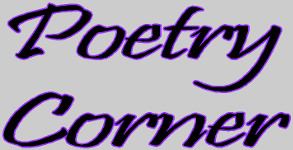My Enchanted Kingdom
Entries
Music Classes
Music Article 1
The Physical response the Body
The Brain
The Pavarotti Prescription
Music Article 2
Music Article 1
Mood Music How music affects the way we feel by Kimberly Husband
From the exhortations of Beethoven's "Ode to Joy" to the mournful
strains of a funeral dirge, music has the power to send spirits
soaring or bring them crashing down. A lullaby can soothe
a child to sleep, while a fight song can inspire greater
efforts on the field of play — or of battle.
What is it about these arrangements of sound
that can change the way we feel?
Go to Top
Classroom Main List
My Enchanted Kingdom
The Physical response the Body
Many studies have been done on the effects of music on mood,
and whole professions, like music therapy, have grown out
of the results. Researchers agree that listening
to music results in physical changes in the body.
The body responds to different music in different ways,
often attempting to synchronize its internal environment
with external stimuli — that is, speeding up or slowing
down to match what's going on around it.
Some music is sedative while other music is stimulative.
Sedative music has a regular beat without syncopation,
is not percussive and features strings and woodwinds
rather than brass and percussion. It is predictable
in rhythm, form and melody. Sedative music can produce
a relaxation response in the listener. Heart rate
and breathing may slow; cardiac output improves,
muscle tension lessens and blood pressure decreases.
The listener may feel less pain or anxiety,
and the brain may even release endorphins.
Stimulative music, on the other hand, speeds
up physical responses. Heart rate and respiration
increase in response to faster tempos and more
percussive beats. The listener has to work
harder to track more complex rhythms or melodies.
Go to Top
Classroom Main List
My Enchanted Kingdom
The Brain
Dr. Anne Blood, a post-doctoral fellow at McGill University
at Montreal Neurological Institute, has studied the brain's
reaction to pleasant and unpleasant music. In a study
published April 1999 in the journal Nature Neuroscience,
she measured blood flow in the brains of subjects
who listened to music of varying degrees of pleasantness
(consonance or harmony) and unpleasantness (dissonance
or disharmony). Blood found that more brain activity
occurred in the frontal lobes as subjects heard pleasant
music, while more activity occurred in the temporal lobes
during unpleasant music. And are these measures of neural
activity levels accurate predictors of subjects' moods?
Nothing more than feelings
"Scientists aren't sure," says Blood. "It's really hard
to say why different types of music cause different
emotions." Knowing which areas of the brain are active
doesn't predict a person's emotional state, she says,
because several different areas of the brain are known
to be involved in governing emotion. Blood points out
that due to individuals' subjective interpretation
of stimuli, brain activity that means high arousal
for one person can mean less agitation for another.
Emotion is highly subjective, adds Dr. Barbara Wheeler,
director of the music therapy program at the University
of Louisville's School of Music. Each listener labels his
or her own response to a piece of music with a feeling
largely based upon the associations the individual has
with that piece. A favorite song from childhood, even
a ballad, might bring back pleasant memories for one person,
while a beautiful operatic passage bores another.
"You can't play one universally ‘happy' song that makes
everyone happy," says Wheeler. "We have some control
over how music affects our own moods,
but we can't predict for others."
Go to Top
Classroom Main List
My Enchanted Kingdom
The Pavarotti Prescription
Regardless of exactly how it works, music does affect
the way we feel, and we can choose our tuneful tonics
accordingly. Music therapists like Dr. Wheeler,
for instance, play soothing music for patients
who need to reduce their stress levels and provide
percussion instruments for those
who want to vent excess energy.
So next time you're feeling out of sorts,
be your own music therapist. If you want to
beat a case of the blues, put on Beethoven's
"Ode to Joy" with its soaring choruses
and grand crescendos building to a breathless
finale. For something soothing, try Pachelbel's
Canon, which features lulling variations
on a theme. To lift lethargy, go with a
relentless Sousa march like "Stars and Stripes
Forever." Need a good cry? Put on Donizetti's
"Lucia di Lammermoor." If you're wound up
tighter than a drum — grab one! If you're
feeling out of tune, don't despair.
A dose of doo-wop may be all you need.
From the January-February, 2001, issue of Today's Health & Wellness magazine.
Go to Top
Classroom Main List
My Enchanted Kingdom
Music Article 2: The Mozart effect
According to musician and researcher Don Campbell,
author of The Mozart Effect, music may provide all
the help you need to be smarter, healthier and
happier. Listening attentively to music can
lower your blood pressure, sharpen your memory and
increase your I.Q. Active listening, which
stimulates several areas of the brain at once,
can increase learning capacity and retention,
activate creativity and even decrease anxiety.
He favors Mozart because the composer's music
is well organized and emotionally consistent.
One of Campbell's studies showed that college
students who listened to Mozart's Sonata for
Two Pianos in D Major scored higher on subsequent
I.Q. tests than did students who heard a relaxation
tape or nothing. However, music that is highly
dense or "cluttered" with loud low sounds,
such as high-volume heavy metal, says Campbell,
can cause the body to reduce its sensation level.
Campbell's book The Mozart Effect for Children
includes guided listening exercises for parents
and children to do together. Whether or not you
believe in the "transformative power of music,"
spending time enjoying it can certainly do no harm.
The fun you have might even produce some positive effects.
~From the January-February, 2001,
issue of Today's Health & Wellness magazine.
Music Classes
Music Article 1
The Physical response the Body
The Brain
The Pavarotti Prescription
Music Article 2
Go To Top
My Enchanted Kingdom























